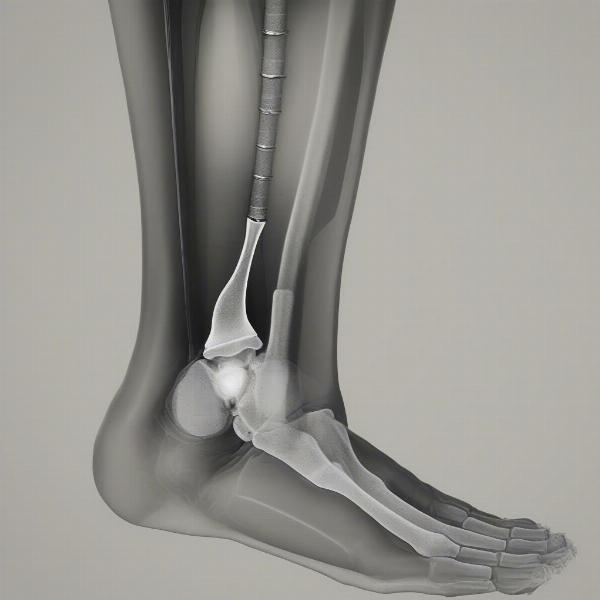Dog implants can encompass a variety of devices used for different purposes, from microchipping for identification to prosthetic limbs for improved mobility. This guide will delve into the different types of dog implants, their benefits, potential risks, and what you should expect during and after the implantation procedure. We’ll cover everything from the common microchip to more specialized implants, offering a clear understanding of this important aspect of canine care.
Microchipping: Your Dog’s Digital ID
Microchipping is perhaps the most common type of dog implant. This small, rice-sized device is inserted under the skin, usually between the shoulder blades, and contains a unique identification number. This number is linked to your contact information in a database, enabling animal shelters and veterinarians to quickly identify your dog if they become lost. Microchipping is a safe and relatively painless procedure, offering peace of mind for pet owners worldwide.
Is microchipping mandatory? While regulations vary depending on location, many countries and regions now require or strongly recommend microchipping for dogs. Even where not mandatory, it’s considered a responsible pet ownership practice.
Orthopedic Implants: Restoring Mobility
Orthopedic implants, such as plates, screws, and artificial joints, are used to repair fractures and treat conditions like hip dysplasia or cruciate ligament tears. These implants are surgically placed to stabilize bones, replace damaged joints, and improve a dog’s mobility and quality of life.
 Dog Leg X-ray Showing Orthopedic Implant
Dog Leg X-ray Showing Orthopedic Implant
While highly beneficial, orthopedic implants can carry risks like infection or implant loosening. Post-operative care, including pain management and physical therapy, is crucial for a successful outcome.
Other Types of Dog Implants: Specialized Applications
Beyond microchips and orthopedic implants, there are other specialized implants used in veterinary medicine. These include:
- Gold Bead Implants: These tiny gold beads are implanted near a dog’s spine to help alleviate pain associated with certain conditions like hip dysplasia.
- Brachycephalic Implants: Designed for breeds with short noses, these implants help widen the nostrils and improve breathing.
- Hormonal Implants: These implants release hormones to address specific medical conditions, such as preventing estrus in female dogs.
What to Expect During and After Implantation
Regardless of the type of implant, it’s important to understand the process and aftercare. Your veterinarian will provide detailed instructions specific to your dog’s needs, but here are some general guidelines:
- Pre-operative Evaluation: Your vet will perform a thorough examination to assess your dog’s health and suitability for the implant.
- Anesthesia: Most implant procedures require general anesthesia to ensure your dog’s comfort and safety.
- Post-operative Care: This typically includes pain medication, antibiotics, and activity restriction. Follow your vet’s instructions carefully to minimize the risk of complications.
- Follow-up Appointments: Regular check-ups are essential to monitor the implant and your dog’s recovery progress.
Choosing the Right Implant for Your Dog
Selecting the appropriate implant for your dog is a decision best made in consultation with your veterinarian. They can evaluate your dog’s individual needs and recommend the most suitable option. Factors to consider include your dog’s breed, age, health status, and the specific problem being addressed.
Conclusion: Weighing the Benefits and Risks of Dog Implants
Dog implants offer a range of benefits, from identification and mobility enhancement to pain management and improved breathing. However, like any medical procedure, they carry potential risks. By understanding the different types of implants, their benefits and risks, and the importance of proper post-operative care, you can make informed decisions about your dog’s health and well-being. Always consult with your veterinarian to determine the best course of action for your furry companion.
FAQ: Common Questions About Dog Implants
- How much does a dog implant cost? The cost varies depending on the type of implant, the complexity of the procedure, and your geographic location. Consult with your veterinarian for a specific quote.
- Are dog implants safe? While generally safe, implants carry potential risks, such as infection or implant rejection. Your veterinarian will discuss these risks with you before the procedure.
- How long do dog implants last? The lifespan of a dog implant depends on the type of implant and individual factors. Microchips are typically permanent, while orthopedic implants may eventually need replacement.
- Can dog implants be removed? Yes, implants can generally be removed, although the procedure may be complex. Discuss the need for removal with your veterinarian.
- What is the recovery time after a dog implant procedure? Recovery time varies depending on the type of implant and the individual dog. Your veterinarian will provide specific instructions for post-operative care and activity restriction.
- Are there any alternatives to dog implants? Depending on the specific condition, there may be alternative treatments available, such as medication, physical therapy, or other surgical procedures.
- Where can I find more information about dog implants? Your veterinarian is the best resource for information about dog implants. You can also find information online from reputable veterinary organizations and websites.
Related Articles on ILM Dog
About ILM Dog
ILM Dog (ilmdog.com) is your trusted resource for expert advice on dog care, offering practical guidance on everything from breed selection and health management to training, nutrition, and grooming. We are dedicated to providing dog owners worldwide with the information they need to ensure their furry companions live long, healthy, and happy lives. We cover a range of specialized topics including medical procedures like surgeries and treatments for conditions like ectopic ureters. For expert advice and personalized guidance on all your dog care needs, contact us today at [email protected] or +44 20-3965-8624.